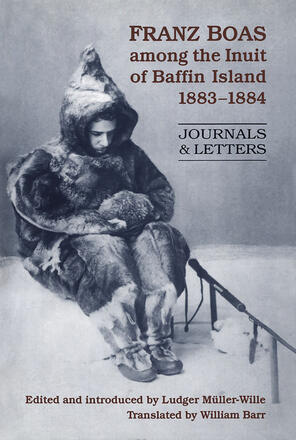
Franz Boas among the Inuit of Baffin Island, 1883-1884
Journals and Letters
Description
In the summer of 1883, Franz Boas, widely regarded as one of the fathers of Inuit anthropology, sailed from Germany to Baffin Island to spend a year among the Inuit of Cumberland Sound. This was his introduction to the Arctic and to anthropological fieldwork. This book presents, for the first time, his letters and journal entries from the year that he spent among the Inuit, providing not only an insightful background to his numerous scientific articles about Inuit culture, but a comprehensive and engaging narrative as well.
Using a Scottish whaling station as his base, Boas travelled widely with the Inuit, learning their language, living in their tents and snow houses, sharing their food, and experiencing their joys and sorrows. At the same time he was taking detailed notes and surveying and mapping the landscape and coastline. Ludger Müller-Wille has transcribed his journals and his letters to his parents and fiancé and woven these texts into a sequential narrative. The result is a fascinating study of one of the earliest and most successful examples of participatory observation among the Inuit. Originally published in German in 1994, the text has been translated into English by William Barr, who has also published translations of other important works on the history of the Arctic.
Illustrated with some of Boas's own photos and with maps of his field area, Franz Boas among the Inuit of Baffin Island, 1883-1884 is a valuable addition to the historical and anthropological literature on southern Baffin Island.
Reviews
‘In every way, this book, so painstakingly and completely assembled by Ludger Müller-Wille and ably translated by William Barr from the original German edition (1994), satisfies both my personal and professional musings.’
- George Wenzel
‘In bringing Boas's early work to a wider public, Müller-Wille performs a great service to the scientific community and to Arctic people. The engaging account documents a pivotal period in the development of research ethics and ethnographic method.’
- V. Alia
‘Professor Müller-Wille should be congratulated on this thorough piece of work, which makes a significant contribution to the history of the social sciences.’
- W. Gillis Ross
‘Franz Boas among the Inuit offers exciting and rewarding reading for both scholars of the ethnohistory of the Canadian Arctic Inuit and students of the “'intellectual history” of anthropology.’
- Igor Krupnik